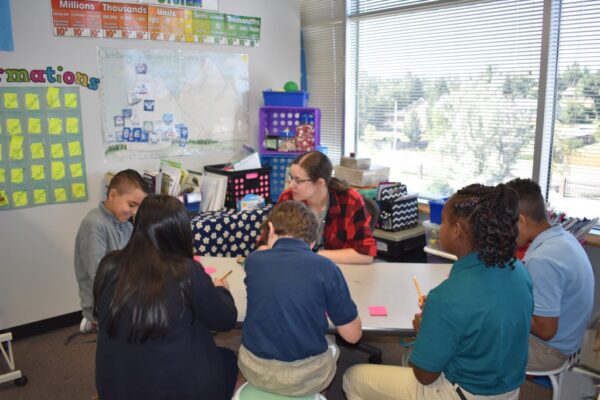Reading Skill Groups
- Differentiated Reading – Matching instruction to meet the needs of learners.
- Reading Centers – Provide practice opportunities and individualized work.
- Small-Group Literacy Lessons – Teach explicit skills and objectives in intensive small groups.
- Hands-on Word Work – Promote inquiry and critical thinking.
- Active Responses – Increase student engagement and motivation to participate.
Small groups are important because learning is social. Children make sense of school activities through observation, participation, and social interaction.
- Easier to differentiate instruction.
- It enables teachers to recognize struggling readers.
- Easier to attend to student needs.
- Guided Reading – Provides a context in which the teacher can monitor and guide the student’s application of specific skills in decoding and comprehension to construct meaning while reading.
- Rotations/Literacy Centers – Centers can be set up with various activities to engage children who are not in the teacher-directed group.
- Skill Groups – Small groups based on specific reading skill levels.

